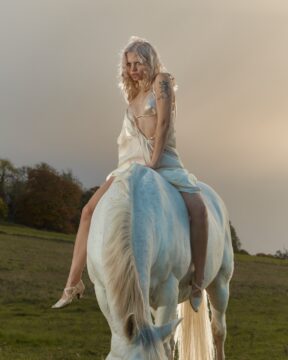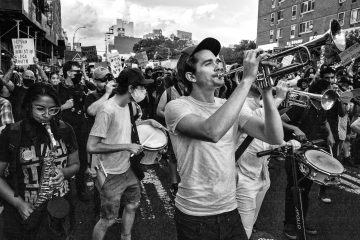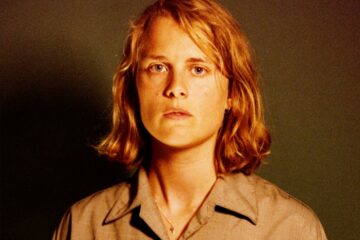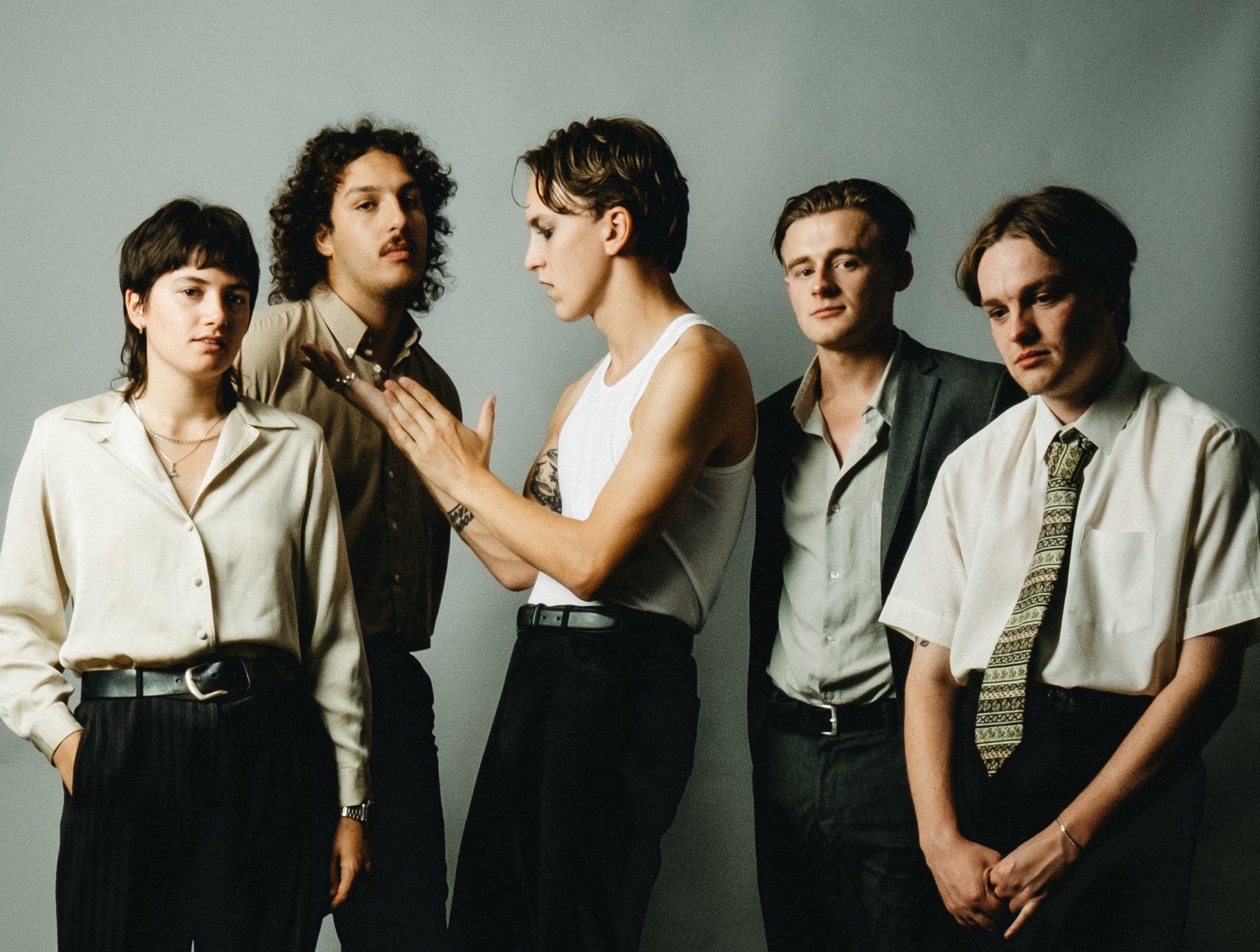
Driffield’s Priestgate are one of those bands you have to see live. That’s no slight on the five-piece’s indie-pop output, which is both dark and dreamy in equal measure; a sound that incorporates the rural humdrum of the band’s upbringing, whilst expressing a desire to escape it.
But to really get it, watching Rob Schofield almost manically conjure the spirit of this impressive new outfit is when it truly comes to life, flanked by Bridie Stagg on drums, Kai Overton on bass, and Connor Bingham and Isaac Ellis both on guitar.
We speak to frontman Rob about how the band came together thanks to his dad’s job in a coffin factory, developing their live shows and second EP, One Shade Darker, set for release this week.
Why the name Priestgate?
When we were starting off, uploading demos to SoundCloud, we didn’t have a name. Bridie lives in another small village, and the street sign said Priestgate on it; quite jokingly, she said we should be called that. All of us looked at her like the penny’d dropped. Went with that thinking we were just going to release a couple of demos, and it stuck.
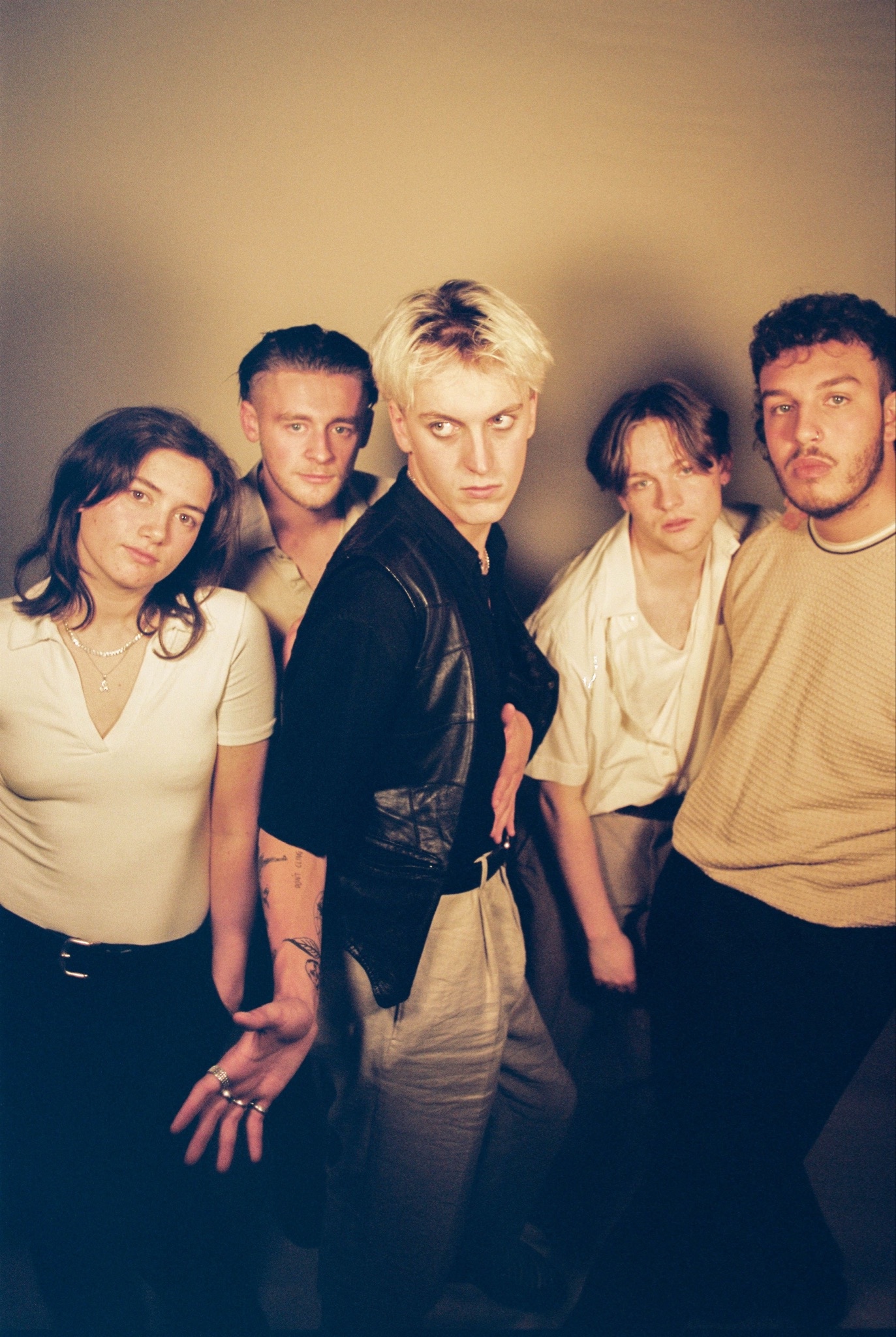
Photo: Stewart Baxter
We interviewed you before your debut EP, Eyes Closed For The Winter, but I still want to understand how Priestgate formed, in your own words…
Quite weirdly, in truth. It wasn’t like we put a flyer up saying, “band wanted”. It was just an excuse to do something that wasn’t sitting in the pub, or being bored. I knew Bridie [Stagg, drummer] through school and said almost as a joke, “shall we start a band?” She said, “Yeah, why not?” It turned out she’d been jamming with Connor [Bingham], our lead guitarist.
Isaac [Ellis], our rhythm guitarist, worked with my dad making coffins in a coffin factory. He introduced us. It was quite organic. It was strange because Driffield is small; it’s not got a massive population full of musicians and creatives. It’s mostly tradesmen and hairdressers.
There’s been much emphasis placed on you being from “sleepy” Driffield, doing music to escape boredom. Is that really the case or is that somewhat glamorised for the sake of a narrative?
I think part of growing up is finding something to do that you like. Ours just happened to be a band; that was what we liked and wanted to do with our time. We could have quite easily all got factory jobs and done that till the day we die like our parents. We felt a compulsion to do something different, and the more we did it, the more exciting it became.
So what was it like when you realised this band thing could work?
I don’t know if we ever realised it could work. We’re still asking, “Are we still doing this? Okay, I guess we need to write more songs.” That’s the fun bit in a lot of ways: we don’t know what we’re doing, which is part of why we do it. We don’t know what we’re going to be doing six months from now. In some ways, we do have ideas, but then things pop up and come through.
In six months we could get the news we’re doing a massive tour, whereas in normal jobs, in factories, you don’t get stuff like that. You’re just thinking, “This is when my dinner is, this is when I leave” and that’s all you’re worried about. Some people are content with that because it’s quite straightforward, but we’re not like that; we need the feeling this could go to shit.
What did the release of Eyes Closed For The Winter do for your sense of yourselves as a band?
I think that EP was the first time we actually took ourselves slightly seriously. The whole writing and recording of the EP weren’t very serious; it was just eating Pot Noodles in Kai [Overton’s] bedroom and thinking of the catchiest melody we could. When it came out, it was surreal because we’d waited so long to be with a label, and then Lucky Number [Music, label] came forward and said, “Let’s release this EP.”
It was the first time we’d ever had to – quote, unquote – write some songs. Before it had just been us getting a takeaway, sitting in Kai’s room and maybe writing a song – and if we didn’t, it wasn’t the end of the world because no one was telling us we had to, but when you have someone telling you you need to do this, it kicks you up the ass.
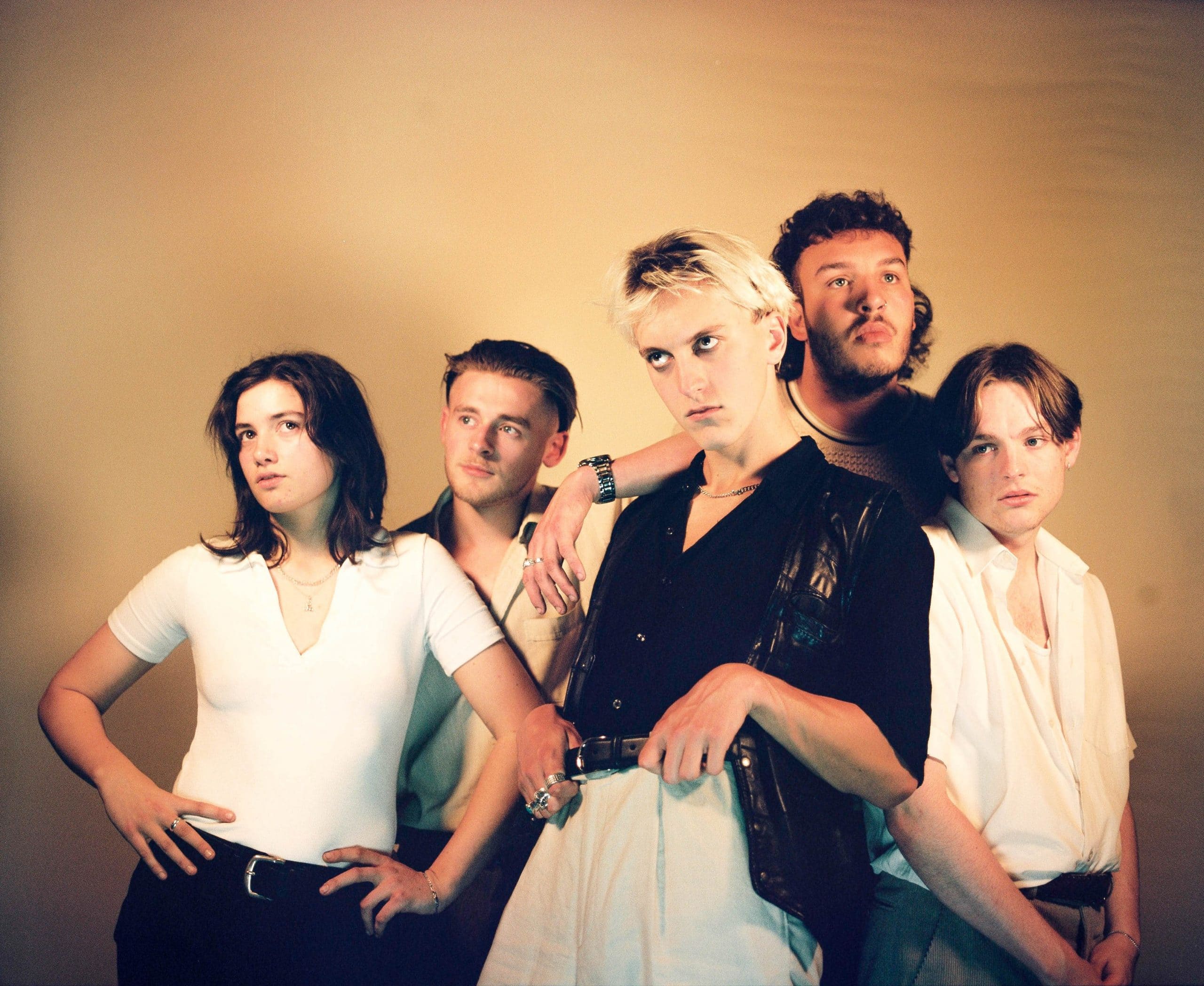
Photo: Stewart Baxter
Obviously, we have One Shade Darker, your new EP, out on 3 March. How does it differ from Eyes Closed For The Winter?
I can’t speak for the rest of the band, but my relationship with writing music after the first EP wasn’t great. I felt a lot of pressure. We’d done this thing we’d wanted to do for ages – release an EP under a label – and then it’s like, “Okay, we need to do it again”, but this time people have a preconception. It got quite unhealthy. I found myself comparing songs that were potentially going to be on One Shade Darker to the other stuff. I think a lot of people think being in bands and writing music all the time must be great, and it is, but a lot can be quite demotivating sometimes.
What’s your track ‘White Shirt’ about?
It’s about Driffield in a lot of ways. Growing up, it felt like there was a sense of having to get out of Driffield, of needing to get to stuff by a certain point or else my life is going to be stuck in this town forever. ‘White Shirt’ is about realising that’s not the case, that some things do take time, and that’s okay.
We’re proud to be from Driffield, but there’s no real reason to be; we don’t have a good football team or a good actor from Driffield. We’ve got a couple of good takeaways. That’s about it. I guess I asked myself, “Why has this whole Driffield thing become a thing?” It’s just where we’re from.
We live in a period where fans and the industry are very quick to associate bands with where they’re from. But do you ever feel that’s a tag that’s overly focused on, that actually you’re not just a band from Driffield, you’re something bigger?
I don’t know, it’s always just been our thing, and it’s worked. We are the band from Driffield. It’s fair enough if we were from Manchester; you’d just think, well, there are loads of bands here. That’s when you start to get stuff like bands wearing matching outfits on stage because they don’t have that tag, so they’re all gonna get stupid haircuts and wear their mum’s clothes for their ‘thing’, and it works. Ours is being from Driffield.
Let’s turn to your live shows. You are slowly but surely building a reputation as quite a compelling frontman. When did you realise that was an asset you had?
The whole acting like a cock on stage thing was never something I thought about. That’s just when I feel least nervous. If I could do the whole Strokes thing, stand there with sunglasses and look cool for 45 minutes, I’d much rather do that. But it just doesn’t feel organic to me. I got quite fidgety on stage if I stand still for too long.
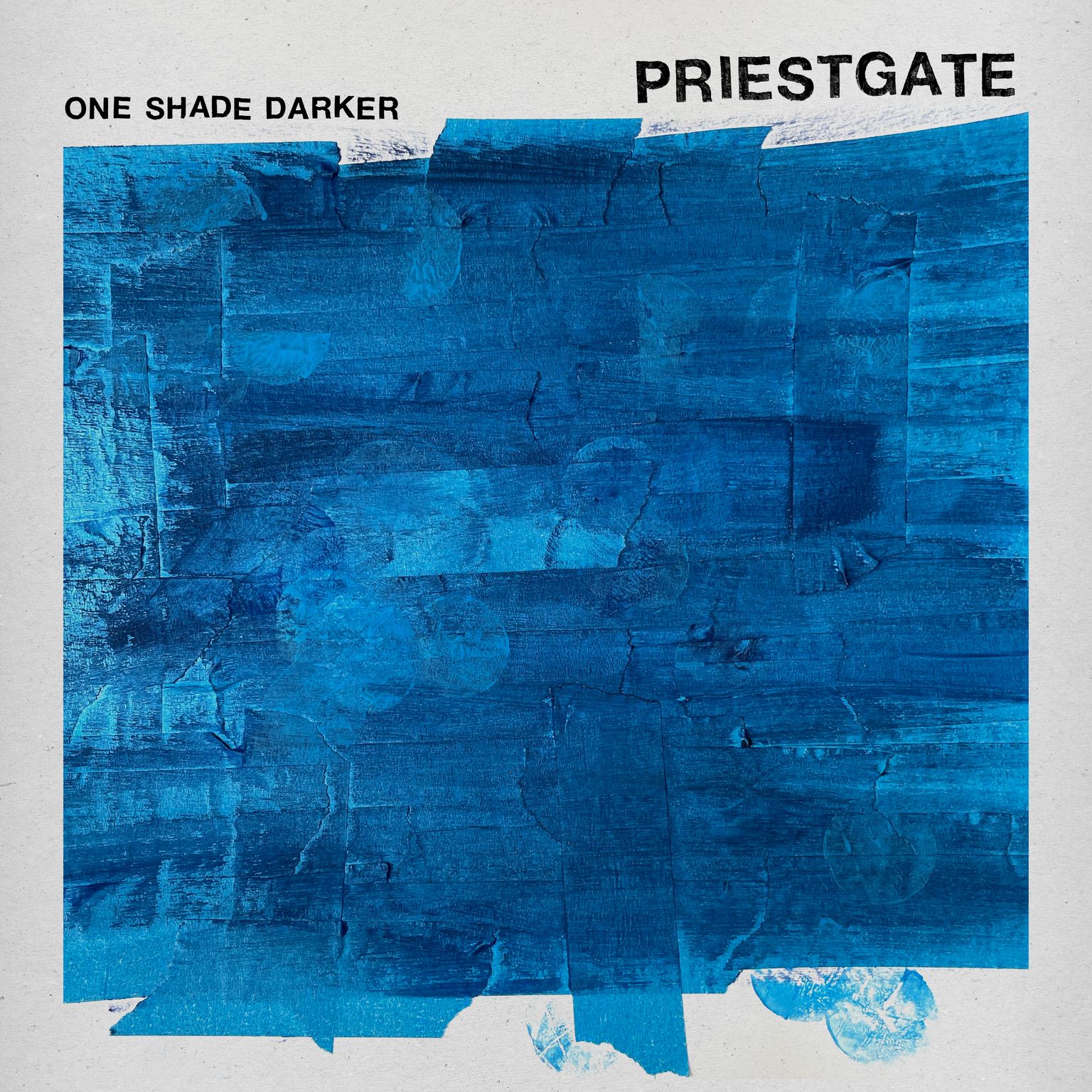
But gig by gig, it’s almost like practising a dance routine in many ways, where I have one move for one part of a set. I just started doing them, remembered them, and they became quite synonymous with the setlist.
To return to your EP again, the second two tracks are a bit darker from your previous releases…
Yeah, [the track] ‘Lucifer’ is our oldest song. We wanted it for an album, but we’ve put it on this EP, and it seems to work, so we just went for it. ‘Into the Blue’ was a song we didn’t like for ages, but then it seemed to make more sense in the context of the other songs. The EP would be called something else with ‘blue’ in the title, so we thought ‘Into the Blue’ would add a bit of cohesion. Obviously, the EP’s called something else, but the song works.
Do the songs’ more melancholic aspects represent a nod towards your future sound?
Yeah, we’re like a pop band with eye makeup on; we very much write poppy, catchy tunes, but at the same time, we like the darker, more mature sound. That’s why we’ve got The Cure comparison a few times because they write really catchy but moody songs – and that’s what we want to do.
What do you make of that comparison?
The Cure are great, but we don’t say, “Let’s sound like The Cure”. But it’s like the pop with a dark sensibility, and if the shoe fits, then wear it.
What’s next for you, then? We’ve obviously got the EP, and your tour, but aside from those…
We’re writing right now, trying to get a good set of songs to sit on. A lot of times before, we’d need four good songs, so we’d write four songs. But now we want to write like 20 that we can choose from. Because we’ve done two EPs now, so what’s next? An album? I don’t know, I just do as I’m told. If they want an album, they can get an album.
One Shade Darker is out on 3 March via Lucky Number.

